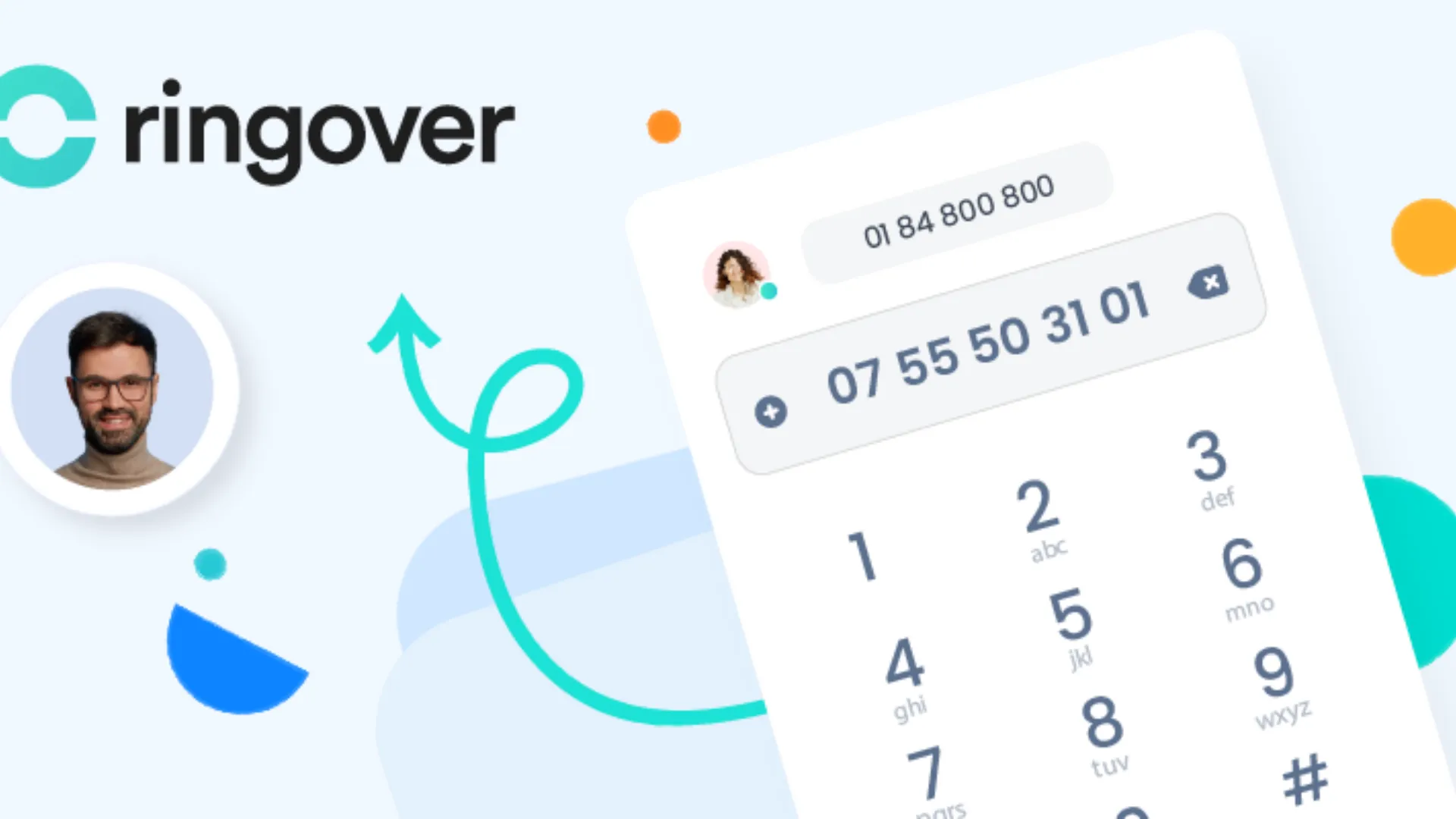
Our Top Picks


The B2B sales landscape has changed dramatically with the rise of AI-powered parallel dialers.
These tools don’t just automate calls—they supercharge outreach by letting sales teams connect with multiple prospects at once.
The result?
Less wasted time, more conversations, and higher conversion rates.
While Orum has made a name for itself in this space, it’s not the only player worth considering.
If you’re looking for Orum alternatives, you’ve got options—some of which might even outperform Orum in key areas like pricing, ease of use, and AI-driven insights.
Why Look for the Best Orum Alternative?
Orum is a solid choice for AI-powered parallel dialing, but it’s not perfect.
Some sales teams find its pricing steep, especially startups and small businesses. Others wish for deeper CRM integration without having to switch between platforms constantly.
If you’re evaluating Orum competitors, here’s what you should prioritize:
- Affordability – Some alternatives offer similar (or better) features at a fraction of the cost.
- Seamless CRM Integration – The best Orum alternatives work inside your existing CRM, eliminating app-switching.
- AI Coaching & Real-Time Insights – Beyond just dialing, top competitors provide live feedback to improve sales calls.
- Scalability – Whether you’re a small team or an enterprise, the right tool should grow with you.
With that in mind, let’s break down the best Orum alternatives available today.
1. Trellus.AI – The Most Affordable & AI-Powered Orum Alternative

If you need a tool that blends AI-driven efficiency with cost-effectiveness and sales enablement in one package, Trellus would be the perfect tool for you.
As far as outgoing calls are concerned, the way artificial intelligence has been used to power different features is pretty remarkable.
The technology picks up on the behavioral call patterns in real time, suggesting cues to cold callers who are stuck with a cold call objection, or someone who needs live assistance in terms of improving call conversational skills.
Moving on, unlike Orum, which requires a separate platform, Trellus operates as a Chrome extension—meaning it integrates directly into your CRM (HubSpot, Salesforce, Apollo.io, etc.) without disrupting your workflow.
Key Features
- Multi-Line Parallel Dialing alongside VM drops on all platforms. Dial more prospects, increase outreach and get better conversions
- Single-Line Auto Dialing (With Parallel Dialing Coming Soon) – Cut down call wait times and boost connect rates with lightning-fast dialing.
- Real-Time AI Sales Coaching – Get live suggestions during calls to improve pitch delivery, objection handling, and closing techniques.
- Zero Latency & Instant Setup – No lag, no complicated onboarding—just install the extension and start calling.
- Call Analytics & Transcripts – Review detailed summaries, track performance, and refine strategies based on data.
- LinkedIn Superhuman - See all your important LinkedIn prospect messages, consolidated over a dedicated hub. Organize DMs by category, and track conversations that matter.
Pricing: A Clear Win Over Orum
Orum’s entry-level plan starts with the Launch package at $250 per user/month, which can be a dealbreaker for smaller teams. Trellus, on the other hand, offers:
- Basic Power Plan – Starting at $59.99/ month and comes with unlimited single line dialing mode for back to back outgoing calls, VM Drops on select platforms only, Access to past call transcripts and LinkedIn Superhuman.
- Parallel Plan – Starting at $149.99 per month, and comes with robust multi line parallel dialing, VM drops on all platforms, everything in Power plan and tons of other features to boost your live sales floor performance.
- Business Plan (Custom pricing) – Tailored for high-volume teams needing enterprise-level features.
For sales teams that want AI-powered dialing without the high cost, Trellus is easily one of the best Orum alternatives available.
2. Voicent

Suppose you're looking for a full-featured communication platform that can handle both inbound and outbound messaging across voice, text, and email.
In that case, Voicent is one of the most mature Orum competitors in the space.
Unlike Orum, which focuses almost exclusively on outbound AI dialing, Voicent casts a wider net.
At its core, Voicent is built to serve not only businesses but also government agencies and nonprofits—making it a flexible option for organizations outside the traditional sales funnel.
The built-in CRM helps automatically track customer interactions, which is a boon for teams looking to streamline communications without juggling multiple systems.
Key Features
- Unified Inbound & Outbound Calling – Manage voice, SMS, and email communications in one place.
- Built-In CRM – Automatically logs customer interactions without needing third-party integrations.
- Automated Workflows – Reduces manual tasks with AI-driven responses and call routing.
Limitations
- Complex Pricing – Costs aren’t clearly listed, requiring a direct sales inquiry.
- Mixed UI Reviews – Some users find the interface outdated or less intuitive.
- Limited Public Feedback – Few user reviews make it hard to gauge real-world performance.
Pricing
Voicent doesn’t display pricing upfront. You’ll need to contact their sales team for a custom quote.
3. Ringover

Ringover is one of the most modern Orum alternatives on this list, especially when it comes to user experience and interface design.
Geared toward staffing agencies and sales teams, this cloud-based communication tool puts a strong emphasis on productivity and customer engagement.
What makes Ringover interesting is how it blends cloud telephony with AI features like call transcription, sentiment analysis, and subject tagging.
These aren’t just gimmicks—sales reps get a clearer picture of how their conversations are going, and managers can spot training opportunities without having to dig through hours of call recordings.
Unlike Voicent, Ringover is very transparent with its pricing.
You can get started at $21 per user/month, which includes unlimited calling to 90 countries, IVR, call forwarding, and even voicemail transcription.
That openness makes it easier for businesses to plan their budgets, especially when comparing the best Orum alternatives.
Key Features
- Conversational AI – Provides call summaries, mood analysis, and automatic topic detection.
- Omnichannel Communications – Handle calls, emails, SMS, and social media from one dashboard.
- Sales Prospecting Automation – Helps personalize outreach with analytics and auto-dialing.
Limitations
- No On-Premise Option – Being 100% cloud-based may not suit security-conscious businesses.
- Higher-Tier Features Locked – Advanced AI tools require premium plans.
- Occasional Chat Delays – Some users report lag in message delivery.
Pricing
Starts at $21/user/month (Smart Plan), with higher tiers offering more AI and analytics.
Still, there are some gaps to keep in mind.
Advanced features are tucked into higher-tier plans, and businesses looking for on-premise solutions won’t find what they need here.
There's also some chatter about message delays and missing security documentation, which could be important depending on your industry.
Despite those caveats, Ringover is a sleek and accessible Orum competitor for teams that want an all-in-one phone and communication solution with solid AI chops.
4. Elto

Elto is probably one of the most technically sophisticated Orum competitors in this lineup.
It’s not built for the average sales rep—it’s made for teams that live and breathe code, automation, and scale.
The platform is especially well-suited for developers who need to dispatch thousands of calls using AI voice agents.
Orum also offers a custom, low-latency pipeline for transcription, reasoning, and speech synthesis, making conversations sound remarkably human.
When paired with advanced language models, which have been trained on millions of phone interactions, Elto delivers conversations that feel less robotic and more personal.
That being said, Elto is not the easiest system to get started with. Setup can be complex, and pricing isn’t visible up front.
If you're not working with a technically savvy team, the onboarding process may feel like more work than it’s worth.
Key Features
- Ultra-Fast Call Processing – AI reduces lag for near-instant responses.
- Scalable API Access – Developers can trigger thousands of calls with minimal code.
- Trained on Millions of Calls – Delivers natural-sounding interactions.
Limitations
- Occasional Connection Glitches – Some users report delays in call linking.
- Steep Learning Curve – Setup can be technical for non-developers.
- No Flexible Pricing – Lacks budget-friendly plans for small teams.
Pricing
Custom quotes only—contact Elto’s sales for details.
5. KrispCall

If your team needs strong CRM integration without sacrificing on-call performance, KrispCall is recognized as more of a balanced Orum alternative on the market.
The platform is built with sales teams in mind, offering an intuitive experience that combines AI-enhanced calling with deep analytics and helpful coaching tools.
One feature that’s especially popular these days is the Unified Callbox, which collects all CRM conversations into a single interface.
That means no more jumping between tabs trying to figure out where a lead last left off.
Another fan favorite is the AI auto-suggestion for messaging, which speeds up replies and ensures agents stay on-brand and on-message.
And for managers? The call whispering feature lets them coach agents in real-time without the customer ever hearing.
Key Features
- Unified Call Inbox – Centralizes all customer conversations.
- AI-Powered Suggestions – Recommends responses mid-call.
- Real-Time Call Coaching – Supervisors can guide agents discreetly.
Limitations
- Mobile App Lags Behind Web – Missing some features available on desktop.
- Connectivity Issues – Some users experience dropped calls.
- Upcoming Features Still in Beta – AI Copilot isn’t fully released yet.
Pricing
No public pricing—request a demo for details.
6. Dialer360

Dialer360 brings a lot to the table, especially if you're managing a high-volume outbound sales team and want to improve agent productivity without adding more seats.
This platform centers around smart dialing with features like an AI dialer that intelligently selects leads and optimizes call timings based on availability.
It also includes a predictive dialer, which reduces idle time and maximizes talk time—something every outbound team is chasing.
Key Features
- Predictive & AI Dialing – Adjusts call pacing based on agent availability.
- Ringless Voicemail – Leaves messages without ringing the recipient’s phone.
- Click-to-Call Widget – Lets customers initiate calls directly from your website.
Limitations
- Inconsistent Call Quality – Some users report audio issues.
- No Multi-Language Support – Limits global usability.
- Basic Automation – Lacks advanced workflows of competitors.
Pricing
Contact sales for a quote.
The absence of multi-language support is also worth noting if you're running an international operation.
For businesses in North America or English-speaking regions, Dialer360 remains a strong Orum competitor—especially if voicemail marketing is a part of your strategy.
7. Nooks

Nooks might just be the most direct Orum competitor out there, with a laser focus on sales productivity.
But where Orum mainly handles AI-powered dialing, Nooks goes further with its assistant-based approach.
There’s the Dialing Assistant, which intelligently automates outbound calling tasks, increasing the number of connects and boosting conversion rates.
Then there’s the Coaching Assistant, which scores every call and offers tailored practice through training bots—a huge win for managers trying to level up their team fast.
The Prospecting Assistant is another great add-on, using real-time buying signals to help reps build smarter lists and send better outreach emails.
What’s impressive is that all of this happens within one platform. It’s like having a small team of virtual SDRs working behind the scenes for every live rep.
Key Features
- Auto-Dialing Assistant – Maximizes call volume and connections.
- AI Coaching Tools – Scores calls and simulates practice scenarios.
- Prospecting Automation – Researches leads and drafts emails.
Limitations
- Buggy New Features – Some tools are unstable at launch.
- Mac Compatibility Issues – Performs poorly on Apple devices.
- No Clear Pricing – Requires direct inquiry.
Pricing
Custom pricing only.
Over To You
And there you have it; some of the best Orum competitors listed above to start with.
If your favorite platform isn’t mentioned here, feel free to reach out to us, and we’d be more than happy to make the addition.







